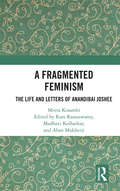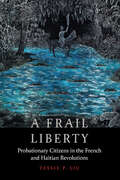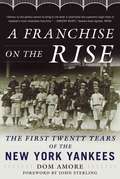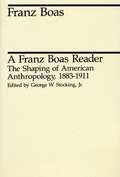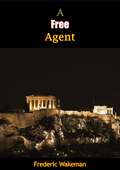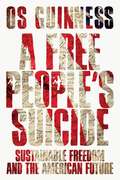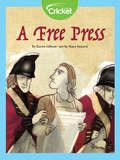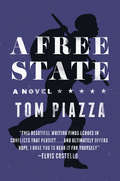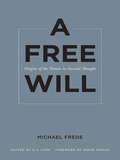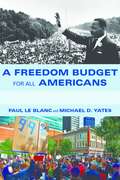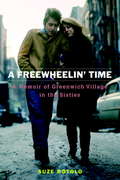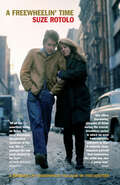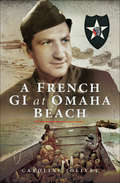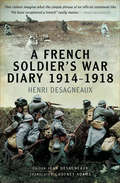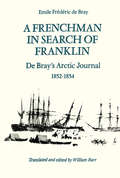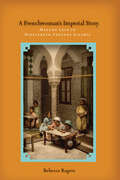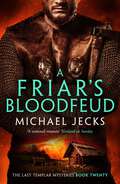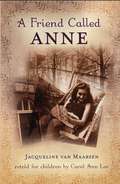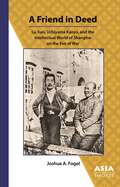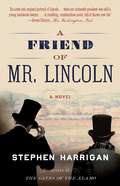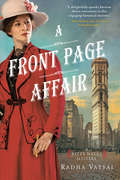- Table View
- List View
A Fragmented Feminism: The Life and Letters of Anandibai Joshee
by Meera Kosambi"This book is a search for ‘the real Anandibai Joshee’ —— a search in which the readers are invited to participate." In her short and eventful life, Anandibai Joshee, the first Indian woman to earn a medical degree, broke many stereotypes. Literate at a time when it was taboo for a girl to attend school or even ‘pick up a paper’, she was courageous, articulate, and assertive. And ambitious. Fuelled by a desire to improve the healthcare that was available to Indian women at that time, she travelled across the seas to the United States to study medicine. Meera Kosambi’s biography of Anandibai is more than just a retelling of the life of a woman who was ahead of her times. Drawing on a host of narratives, Kosambi recovers Anandibai’s many voices, which have been submerged in history — that of a conflicted feminist, a nationalist, and a reformer, among others — and her engagement with the world at large. This volume is a testament to Meera Kosambi’s commitment to social history. When she passed away in 2015, she left an incomplete manuscript that has painstakingly been put together by the editors. Drawing on archival research, including a host of Anandibai’s letters, her poems in Marathi, newspaper reports, and rare photographs, this book will be of immense interest to scholars and researchers of modern Indian history, sociology, gender, and South Asian studies.
A Frail Liberty: Probationary Citizens in the French and Haitian Revolutions (France Overseas: Studies in Empire and Decolonization)
by Tessie P. LiuA Frail Liberty traces the paradoxical actions of the first French abolitionist society, the Société des Amis des Noirs (Society of the Friends of Blacks), at the juncture of two unprecedented achievements of the revolutionary era: the extension of full rights of citizenship to qualifying free men of color in 1792 and the emancipation decree of 1794 that simultaneously declared the formerly enslaved to be citizens of France. This society helped form the revolution&’s notion of color-blind equality yet did not protest the pro-slavery attack on the new citizens of France. Tessie P. Liu prioritizes the understanding of the elite insiders&’ vision of equality as crucial to understanding this dualism. By documenting the link between outright exclusion and political inclusion and emphasizing that a nation&’s perceived qualifications for citizenship formulate a particular conception of racial equality, Liu argues that the treatment and status distinctions between free people of color and the formerly enslaved parallel the infamous divide between &“active&” and &“passive&” citizens. These two populations of colonial citizens with African ancestry then must be considered part of the normative operations of French citizenship at the time. Uniquely locating racial differentiation in the French and Haitian revolutions within the logic and structures of political representation, Liu deepens the conversation regarding race as a civic identity within democratic societies.
A Franchise on the Rise: The First Twenty Years of the New York Yankees
by Dom Amore John Sterling2018 marks 115 years since the inception of the New York Yankees--and what a 115-year period it's been! But how did the team that has since won a league-leading 27 world championships get started? In A Franchise on the Rise, veteran sportswriter Dom Amore takes readers back in time to the first twenty years of the team's existence, from 1903 to 1923, focusing on all the major players and events, including their first ten years as the Highlanders, their move to Yankee Stadium, and their subsequent first World Series in 1923. In doing so, Amore successfully finds the characters' own voices and thereby vividly reconstructs events of more than a century ago. He recounts the snowy night Honus Wagner was offered twenty crisp $1,000 bills to join the new franchise in New York; the story behind the holes punched in the outfield fence that facilitated the stealing of signs in 1909; and why the team thought it may have had the next big superstar in a college football end named George Halas. This is a tale about the business of baseball as it was done at the time and, in many ways, as it still must be done. There was no secret to building a winning organization. It took money and luck, but it also took a group of people working as a team, each allowed to do his job and each doing it superbly.
A Franz Boas Reader: The Shaping of American Anthropology, 1883-1911
by Franz Boas George W. StockingBoth a collection of Boas's papers and an introduction to the background and basic assumptions of Boasian anthropology.
A Free Agent
by Frederic WakemanAN EXCITING, POWERFUL NOVEL ABOUT A DEDICATED UNDERCOVER MAN FOR WHOM THE COLD WAR IS A RED-HOT, EXPLOSIVE REALITY!From New Guinea to Athens to Africa, this sweeping, powerful novel traces the exciting and always dangerous career of a hero of our time.First as a dive-bomber pilot, then as an undercover agent, Mark Marklay daily risks his life for his country. And he freely accepts the blind obedience demanded of him even when it means blotting out private scruples or leaving his beautiful Greek wife in the middle of their honeymoon.But he is forced to re-evaluate his marriage, his life and the entire Cold War struggle when he is betrayed and captured while on a dangerous mission in Africa—and is confronted with evidence that the informer has been his own wife!“…impressive beyond anything Wakeman has done before. It fulfills an obligation to entertain without bypassing the mind or overlooking chances to kick sacred cows when they stray onto the path.”—The New York Times Book Review
A Free People's Suicide: Sustainable Freedom And The American Future
by Os Guinness2013 Logos Book of the Year in Christianity/Culture! "If destruction be our lot, we must ourselves be its author and finisher. As a nation of freemen, we must live through all time, or die by suicide." Abraham Lincoln Nothing is more daring in the American experiment than the founders' belief that the American republic could remain free forever. But how was this to be done, and are Americans doing it today? It is not enough for freedom to be won. It must also be sustained. Cultural observer Os Guinness argues that the American experiment in freedom is at risk. Summoning historical evidence on how democracies evolve, Guinness shows that contemporary views of freedom--most typically, a negative freedom from constraint-- are unsustainable because they undermine the conditions necessary for freedom to thrive. He calls us to reconsider the audacity of sustainable freedom and what it would take to restore it. "In the end," Guinness writes, "the ultimate threat to the American republic will be Americans. The problem is not wolves at the door but termites in the floor." The future of the republic depends on whether Americans will rise to the challenge of living up to America's unfulfilled potential for freedom, both for itself and for the world.
A Free Press
by Karen GibsonDuring the early 18th century, colonist John Peter Zenger printed a newspaper called the New-York Weekly Journal. Zenger helped bring information to the colonists of New York City. However, after publishing an editorial that opposed the actions of a local governor, Zenger was arrested for eight months before his trial. How would Zenger escape this situation?
A Free State
by Tom PiazzaThe author of City of Refuge returns with a startling novel of race, violence, and identity. The year is 1855. Blackface minstrelsy is the most popular form of entertainment in a nation about to be torn apart by the battle over slavery. Henry Sims, a fugitive slave and a brilliant musician, has escaped to Philadelphia, where he lives by his wits and earns money performing on the street. He is befriended by James Douglass--leader of the Virginia Harmonists, a minstrel troupe struggling to compete with dozens of similar ensembles--who senses that Henry's skill and magnetism could restore his show's sagging fortunes. The problem is that black performers are not allowed to appear onstage, even in Philadelphia. Together the two concoct a dangerous masquerade to protect Henry's identity, and he creates a sensation in his first appearances with the Harmonists. Yet even as the troupe's fortunes begin to improve, a brutal slave hunter named Tull Burton has been employed by Henry's former master to track down the runaway and retrieve him, dead or alive.A Free State is both a riveting chase novel and a searing parable of liberty and its costs. Charged with narrative tension and unforgettable characters, A Free State is a thrilling work by a novelist at the height of his powers.
A Free Will
by David Sedley Michael Frede A. A. LongWhere does the notion of free will come from? How and when did it develop, and what did that development involve? In Michael Frede's radically new account of the history of this idea, the notion of a free will emerged from powerful assumptions about the relation between divine providence, correctness of individual choice, and self-enslavement due to incorrect choice. Anchoring his discussion in Stoicism, Frede begins with Aristotle--who, he argues, had no notion of a free will--and ends with Augustine. Frede shows that Augustine, far from originating the idea (as is often claimed), derived most of his thinking about it from the Stoicism developed by Epictetus.
A Freedom Budget for All Americans: Recapturing the Promise of the Civil Rights Movement in the Struggle for Economic Justice Today
by Paul Le Blanc Michael D. YatesWhile the Civil Rights Movement is remembered for efforts to end segregation and secure the rights of African Americans, the larger economic vision that animated much of the movement is often overlooked today. That vision sought economic justice for every person in the United States, regardless of race. It favored production for social use instead of profit; social ownership; and democratic control over major economic decisions. The document that best captured this vision was the Freedom Budget for All Americans: Budgeting Our Resources, 1966-1975, To Achieve Freedom from Want published by the A. Philip Randolph Institute and endorsed by a virtual ‘who’s who’ of U.S. left liberalism and radicalism. Now, two of today’s leading socialist thinkers return to the Freedom Budget and its program for economic justice. Paul Le Blanc and Michael D. Yates explain the origins of the Freedom Budget, how it sought to achieve “freedom from want” for all people, and how it might be reimagined for our current moment. Combining historical perspective with clear-sighted economic proposals, the authors make a concrete case for reviving the spirit of the Civil Rights Movement and building the society of economic security and democratic control envisioned by the movement’s leaders—a struggle that continues to this day.
A Freewheelin' Time: A Memoir of Greenwich Village in the Sixties
by Suze RotoloRotolo, who was romantically involved with Bob Dylan from 1961 to 1964 (she's the girl on the cover of his debut album), has written this memoir of the rise of the folk music movement in Greenwich Village from a firsthand perspective. Exhibiting a writing style that is succinct yet impassioned, she vividly recreates that period in history while recounting her own growing political awareness, and explains how folk music eventually led her to a life of activism (she became involved in the Civil Rights Movement). Fans of Bob Dylan and folk music in general should enjoy this volume. Annotation ©2008 Book News, Inc. , Portland, OR (booknews. com)
A Freewheelin' Time: A Memoir of Greenwich Village in the Sixties
by Suze Rotolo‘I met Bob Dylan in 1961 when I was seventeen years old and he was twenty…’ So begins the acclaimed memoir of Suze Rotolo, the woman who was Bob Dylan’s girlfriend in the early sixties. She reveals the romantic story of their sweet but sometimes wrenching love affair and its eventual collapse under the pressure of Dylan’s growing fame. Despite having never previously raised her head above the parapet to write about her time with him, people are probably more familiar with Rotolo than they might think: it is she who is pictured arm in arm with Dylan on the iconic sleeve of his 1963 sophomore album, The Freewheelin’ Bob Dylan. Set during the time when Dylan was writing the soundtrack to the cultural revolution of the 1960s, this is a unique and remarkable narrative of a place and time when art, culture and politics all seemed to be conspiring to make America a freer, more equitable place. With a supporting cast that includes Fidel Castro, Che Guevara, Phil Ochs, Joan Baez and Andy Warhol, this is essential reading for Dylan fans and anyone fascinated by the Sixties.
A French GI at Omaha Beach
by Caroline JolivetThe thrilling true account of Bernard Dargols—a French, Jewish expatriate who joined America’s fight to free his country from the Nazis in World War II. Dargols was a young Parisian student working in New York when the war broke out in 1939. While his family remained in France and was threatened by the Vichy regime’s anti-Semitic laws, Bernard decided to enlist in the US Army to fight the occupying forces. Following his grueling military training, Dargols was assigned to the Military Intelligence Service, Second US Infantry Division as an interpreter and translator, landing on the infamous Omaha Beach in June 1944. His exploits included taking part in the liberation of Normandy, Brittany, and the Ardennes before becoming a member of the CIC—the American counter-espionage service—and finally being discharged in 1946. Thoroughly researched and written by Dargol’s own granddaughter, this is the gripping story of a man known as the “GI from the Place des Vosges” who joined a foreign army to free his beloved homeland from tyranny.
A French Soldier's War Diary 1914–1918
by Henri DesagneauxA classic up-close memoir of fighting in the chaos of World War I. Today, we may have an orderly historical picture of the Great War. But for a soldier like Henri Desagneaux, there was no pattern to be seen from the trenches, where he executed orders ensuring that dozens of men had to die attempting to achieve impossible objectives worked out at a headquarters in the rear. His diary, one of the classic French accounts of the conflict, gives a vivid insight into what it was like to execute those orders, and to live in the trenches with increasingly demoralized, unruly, and mutinous men. In terse, unflinching prose he records their experiences as they confronted the acute dangers of the front line. The appalling conditions in which they fought—and the sheer intensity of the shellfire and the close-quarter combat—have rarely been conveyed with such immediacy.
A Frenchman in Search of Franklin: De Bray's Arctic Journal, 1852-1854
by Emile Frédéric de BrayIn April 1852 Emile Frederic de Bray sailed down the Thames on board the Resolute, part of Sie Edward Belcher's Arctic Squadron in search of Sir John Franklin and his men, missing since the summer of 1845. De Bray's diaries of his years with Resolute have not been published before, in any language, and only one other account of this particular Franklin search expedition exists. Enseigne-de-vaisseau de Bray, seconded at his own request from the French navy, was something of a rarity among those who made up the search parties: he was not British. (One of his shipmates hopes for the best: 'The Frenchman does not seem an Englishman,' he observed, 'but I suppose he will improve on acquaintance.') Cape de Bray on the northwest coast of Melville Island commemorates the efforts of this intrepid French officer, who gained the respect of his fellows, was made an officer of the Legion d'Honneur by Napolean III, and was awarded the Arctic Medal by Queen Victoria. William Barr provides an introduction, postscript, and extensive notes, placing de Bray and the expedition in context. This volume tells us much about the life the Europeans led in the unexplored and frozen northern waters.
A Frenchwoman's Imperial Story: Madame Luce in Nineteenth-Century Algeria
by Rebecca RogersEugénie Luce was a French schoolteacher who fled her husband and abandoned her family, migrating to Algeria in the early 1830s. By the mid-1840s she had become a major figure in debates around educational policies, insisting that women were a critical dimension of the French effort to effect a fusion of the races. To aid this fusion, she founded the first French school for Muslim girls in Algiers in 1845, which thrived until authorities cut off her funding in 1861. At this point, she switched from teaching spelling, grammar, and sewing, to embroidery—an endeavor that attracted the attention of prominent British feminists and gave her school a celebrated reputation for generations. The portrait of this remarkable woman reveals the role of women and girls in the imperial projects of the time and sheds light on why they have disappeared from the historical record since then.
A Friar's Bloodfeud (Last Templar Mysteries 20): A dark force threatens England…
by Michael JecksCan the evil at work ever be stopped? The compulsive and evocative twentieth novel in the Knights Templar series from Michael Jecks, featuring much-loved characters Sir Baldwin de Furnshill and Simon Puttock. Perfect for fans of C.J. Sansom and George R. R. Martin.'Atmospheric and cleverly plotted' - Observer March 1323: in the rural idyll of Iddesleigh, a gang of men break into the home of Bailiff Simon Puttock's servant and attack his family. When word reaches Simon, he and Sir Baldwin de Funshill, Keeper of the King's Peace, hurry to the home, finding it burned to the ground and the bodies from within already buried.Could this be the result of a tragic accident, or is a darker force at work? As Baldwin and Simon attempt to uncover the truth, it quickly becomes clear that a terrible evil lurks in the land, and that the pain and bloodshed are far from over. What readers are saying about A Friar's Bloodfeud: 'A very good book. An interesting story populated with solid and interesting characters... A relaxed and finely paced writing style''Another cracking story from Michael Jecks and a plot that kept me guessing until the near end and even then I wasn't wholly sure... I can't sing Michael's praises enough''[A] very clever and masterful bit of writing'
A Friar's Bloodfeud: A dark force threatens England (Medieval West Country Mystery #20)
by Michael JecksBailiff Simon Puttock's servant, Hugh, has been granted leave to look after his wife, Constance, and to help raise their child. But soon after, she is attacked in their home, raped by a gang of men. Then she watches as her son is murdered and Hugh is struck down, before she too is killed and the house set afire. When Simon and Sir Baldwin Furnshill, Keeper of the King's Peace, arrive at the grisly scene, the cottage is burned to the ground, the body of the child lying outside. Inside is a woman's torso, badly charred. There are no remains of Hugh, but the fire raged so fiercely that all believe he has perished. But nothing is so simple. Simon vows revenge, and there are dark forces lurking that will cause no end of mayhem and bloodshed. Contains some adult situations.
A Friend Called Anne
by Jacqueline Van MaarsenWhen Jacqueline met Anne on her way home from school in the 1940s, the two girls formed an instant friendship. But with every day came an increasing sense of fear, especially as the Nazis took over Amsterdam. Despite the impending war, the friendship between Anne Frank and Jacqueline van Maarsen would never be broken, even when Anne was forced into hiding.
A Friend in Deed: Lu Xun, Uchiyama Kanzō, and the Intellectual World of Shanghai on the Eve of War (Asia Shorts)
by Joshua FogelLu Xun spent the last decade of his life in the turbulent world of Shanghai. Soon after arriving in 1927, he befriended Uchiyama Kanzō, owner of a bookstore specializing in Japanese writings. Their friendship and the mutual kindnesses (occasionally involving near-death experiences) form the core of this short volume. In part a meditation of what two people with such different backgrounds—one the most famous intellectual of his time, the other a merchant with a sixth-grade education from a country on the verge of launching total war against China—may speak to our own fractious times. Drawing on his extensive knowledge of Sino-Japanese exchange, Joshua Fogel paints a captivating portrait of two men of very different temperament, background, and political outlook. We see their friendship in ordinary moments over a cup of Karigane tea, a specially-reserved rattan chair, and the efforts at mounting exhibits of woodblock prints but also in extraordinary moments when Uchiyama protected Lu Xun from GMD spies and Japanese military police in the tumultuous years before total war. Theirs was a remarkable friendship indeed.
A Friend of Mr. Lincoln
by Stephen HarriganThe author of the best-selling The Gates of the Alamo now gives us a galvanizing portrait of Abraham Lincoln during a crucially revealing period of his life, the early Springfield years, when he risked both his sanity and his ethical bearings as he searched for the great destiny he believed to be his.It is Illinois in the 1830s and 1840s. Abraham Lincoln is a circuit-riding lawyer, a member of the state legislature, a man of almost ungovernable ambition. To his friends he is also a beloved figure, by turns charmingly awkward and mesmerizingly self-possessed--a man of whom they, too, expect big things. Among his friends and political colleagues are Joshua Speed, William Herndon, Stephen Douglas, and many others who have come to the exploding frontier town of Springfield to find their futures. It is through another friend, a fictional poet, Cage Weatherby, that we will come to know Lincoln in his twenties and thirties, as a series of formative, surprising incidents unfolds--his service in the Black Hawk War, his participation in a poetry-writing society, a challenge to a duel that begins as a farce but quickly rises to lethal potential . . . Cage both admires and clashes with Lincoln, sometimes questioning his legal ethics and his cautious stance on slavery. But he is by Lincoln's side as Lincoln slips back and forth between high spirits and soul-hollowing sadness and depression, and as he recovers from a disastrous courtship of one woman to marry the beautiful, capricious, politically savvy Mary Todd. It is Mary who will bring stability to Lincoln's life, but who will also trigger a conflict that sends the two men on very different paths into the future.Historically accurate, rich in character, filled with the juice and dreams and raw ambitions of Americans on the make in an early frontier city, A Friend of Mr. Lincoln is a revelatory and moving portrayal of Abraham Lincoln in his young manhood. It is a close-up, involving experience, the sort of vibrant glimpse beneath the veneer of history that only the very best fiction can provide.From the Hardcover edition.
A Friend of Mr. Lincoln: A novel
by Stephen HarriganThe author of the best-selling The Gates of the Alamo now gives us a galvanizing portrait of Abraham Lincoln during a crucially revealing period of his life, the early Springfield years, when he risked both his sanity and his ethical bearings as he searched for the great destiny he believed to be his.It is Illinois in the 1830s and 1840s. Abraham Lincoln is a circuit-riding lawyer, a member of the state legislature, a man of almost ungovernable ambition. To his friends he is also a beloved figure, by turns charmingly awkward and mesmerizingly self-possessed—a man of whom they, too, expect big things. Among his friends and political colleagues are Joshua Speed, William Herndon, Stephen Douglas, and many others who have come to the exploding frontier town of Springfield to find their futures. It is through another friend, a fictional poet, Cage Weatherby, that we will come to know Lincoln in his twenties and thirties, as a series of formative, surprising incidents unfolds—his service in the Black Hawk War, his participation in a poetry-writing society, a challenge to a duel that begins as a farce but quickly rises to lethal potential . . . Cage both admires and clashes with Lincoln, sometimes questioning his legal ethics and his cautious stance on slavery. But he is by Lincoln’s side as Lincoln slips back and forth between high spirits and soul-hollowing sadness and depression, and as he recovers from a disastrous courtship of one woman to marry the beautiful, capricious, politically savvy Mary Todd. It is Mary who will bring stability to Lincoln’s life, but who will also trigger a conflict that sends the two men on very different paths into the future.Historically accurate, rich in character, filled with the juice and dreams and raw ambitions of Americans on the make in an early frontier city, A Friend of Mr. Lincoln is a revelatory and moving portrayal of Abraham Lincoln in his young manhood. It is a close-up, involving experience, the sort of vibrant glimpse beneath the veneer of history that only the very best fiction can provide.From the Hardcover edition.
A Friend of Mr. Lincoln: A novel
by Stephen HarriganThe author of the best-selling The Gates of the Alamo now gives us a galvanizing portrait of Abraham Lincoln during a crucially revealing period of his life, the early Springfield years, when he risked both his sanity and his ethical bearings as he searched for the great destiny he believed to be his.It is Illinois in the 1830s and 1840s. Abraham Lincoln is a circuit-riding lawyer, a member of the state legislature, a man of almost ungovernable ambition. To his friends he is also a beloved figure, by turns charmingly awkward and mesmerizingly self-possessed—a man of whom they, too, expect big things. Among his friends and political colleagues are Joshua Speed, William Herndon, Stephen Douglas, and many others who have come to the exploding frontier town of Springfield to find their futures. It is through another friend, a fictional poet, Cage Weatherby, that we will come to know Lincoln in his twenties and thirties, as a series of formative, surprising incidents unfolds—his service in the Black Hawk War, his participation in a poetry-writing society, a challenge to a duel that begins as a farce but quickly rises to lethal potential . . . Cage both admires and clashes with Lincoln, sometimes questioning his legal ethics and his cautious stance on slavery. But he is by Lincoln’s side as Lincoln slips back and forth between high spirits and soul-hollowing sadness and depression, and as he recovers from a disastrous courtship of one woman to marry the beautiful, capricious, politically savvy Mary Todd. It is Mary who will bring stability to Lincoln’s life, but who will also trigger a conflict that sends the two men on very different paths into the future.Historically accurate, rich in character, filled with the juice and dreams and raw ambitions of Americans on the make in an early frontier city, A Friend of Mr. Lincoln is a revelatory and moving portrayal of Abraham Lincoln in his young manhood. It is a close-up, involving experience, the sort of vibrant glimpse beneath the veneer of history that only the very best fiction can provide.From the Hardcover edition.
A Friendship for Today
by Patricia C. MckissackFrom highly acclaimed, award-winning author Patricia McKissack comes a powerful, poignant, and timely tale of segregation, family, and one surprising friendship.
A Front Page Affair
by Radha VatsalNew York City, 1915The Lusitania has just been sunk, and headlines about a shooting at J.P. Morgan's mansion and the Great War are splashed across the front page of every newspaper. Capability "Kitty" Weeks would love nothing more than to report on the news of the day, but she's stuck writing about fashion and society gossip over on the Ladies' Page--until a man is murdered at a high society picnic on her beat.Determined to prove her worth as a journalist, Kitty finds herself plunged into the midst of a wartime conspiracy that threatens to derail the United States' attempt to remain neutral--and to disrupt the privileged life she has always known.Radha Vatsal's A Front Page Affair is the first book in highly anticipated series featuring rising journalism star Kitty Weeks.
